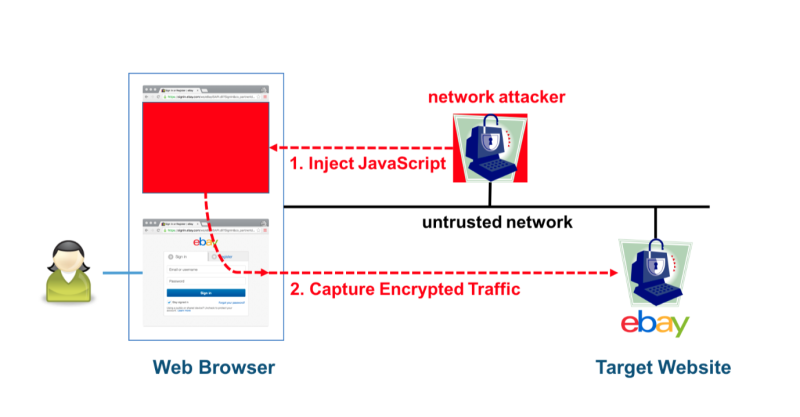Rash Of Phishing Attacks Use HTTPS To Con Victims
Phishing sites are deploying freely available TLS certificates in order to dupe victims into thinking they’re visiting a safe site.
Threatpost | The first stop for security news
Phishing sites are deploying freely available TLS certificates in order to dupe victims into thinking they’re visiting a safe site.
Threatpost | The first stop for security news
Companies that use security products to inspect HTTPS traffic might inadvertently make their users’ encrypted connections less secure and expose them to man-in-the-middle attacks, the U.S. Computer Emergency Readiness Team warns.
US-CERT, a division of the Department of Homeland Security, published an advisory after a recent survey showed that HTTPS inspection products don’t mirror the security attributes of the original connections between clients and servers.
HTTPS inspection checks the encrypted traffic coming from an HTTPS site to make sure it doesn’t contain threats or malware. It’s performed by intercepting a client’s connection to an HTTPS server, establishing the connection on the client’s behalf and then re-encrypting the traffic sent to the client with a different, locally generated certificate. Products that do this essentially act as man-in-the-middle proxies.
To read this article in full or to leave a comment, please click here
|
Half of Internet traffic is protected by HTTPS – EFF
MyBroadband The movement to encrypt the web has reached a milestone. As of earlier this month, approximately half of Internet traffic is now protected by HTTPS. In other words, we are halfway to a web safer from the eavesdropping, content hijacking, cookie … |

Enlarge / From an upcoming paper laying out a new attack against 64-bit block ciphers used by HTTPS and OpenVPN. (credit: Karthikeyan Bhargavan and Gaëtan Leurent)
Researchers have devised a new attack that can decrypt secret session cookies from about 1 percent of the Internet’s HTTPS traffic and could affect about 600 of the Internet’s most visited sites, including nasdaq.com, walmart.com, match.com, and ebay.in.
The attack isn’t particularly easy to carry out because it requires an attacker to have the ability to monitor traffic passing between the end user and one of the vulnerable websites and to also control JavaScript on a webpage loaded by the user’s browser. The latter must be done either by actively manipulating an HTTP response on the wire or by hosting a malicious website that the user is tricked into visiting. The JavaScript then spends the next 38 hours collecting about 785GB worth of data to decrypt the cookie, which allows the attacker to log into the visitor’s account from another browser. A related attack against OpenVPN requires 18 hours and 705GB of data to recover a 16-byte authentication token.
Despite the difficulty in carrying out the attack, the researchers said it works in their laboratory and should be taken seriously. They are calling on developers to stop using legacy 64-bit block-ciphers. For transport layer security, the protocol websites use to create encrypted HTTPS connections, that means disabling the Triple DES symmetric key cipher, while for OpenVPN it requires retiring a symmetric key cipher known as Blowfish. Ciphers with larger block sizes, such as AES, are immune to the attack.